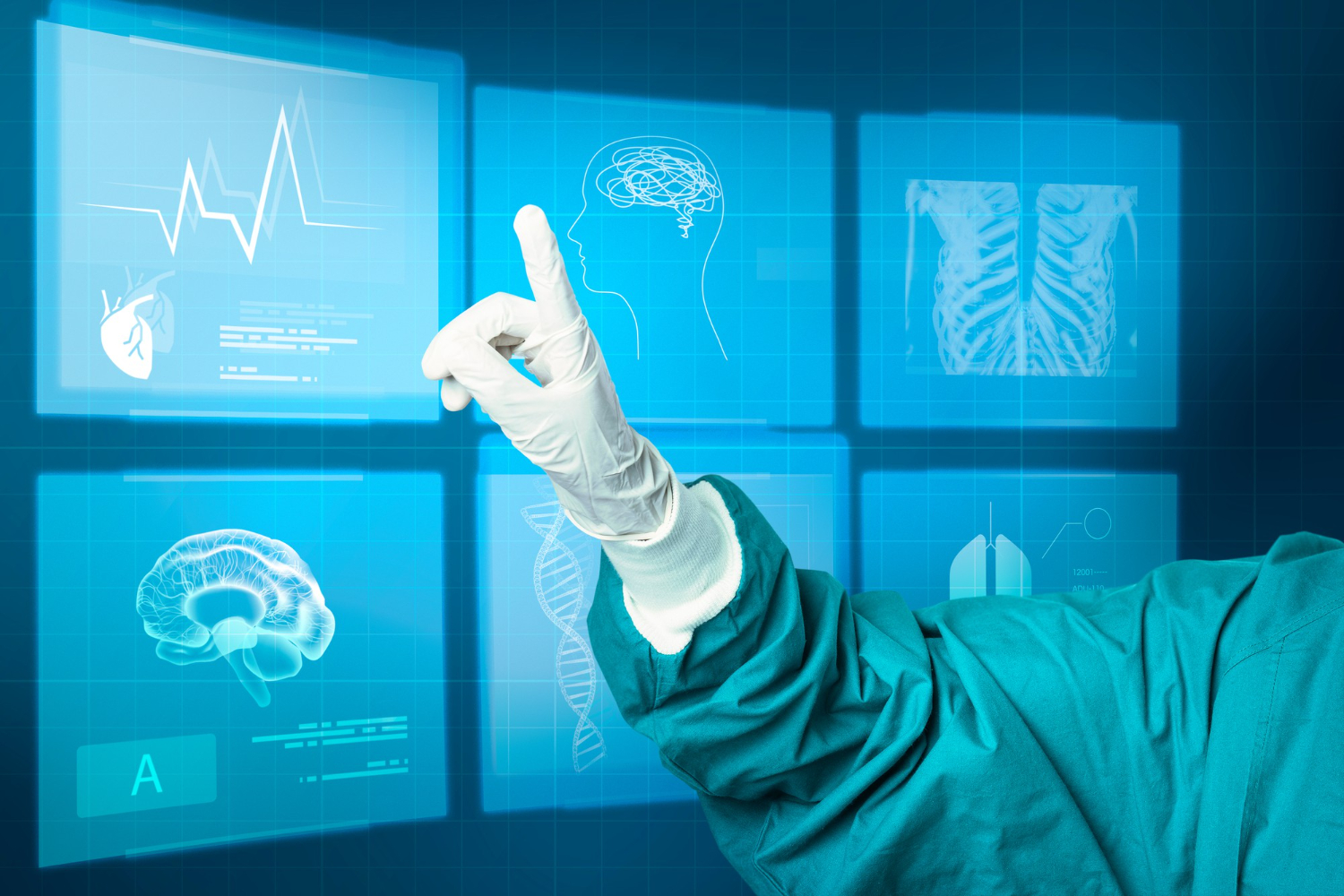
What is Generative AI?
Generative AI refers to artificial intelligence systems that have the ability to create new content, such as text, images, or even music, by learning patterns from existing data. These systems use algorithms to generate original and often realistic output, making them valuable for various creative and problem-solving applications.
How is generative AI used in the health care industry?
Generative AI has emerged as a transformative force in the healthcare industry, revolutionizing patient care, research, and administrative tasks. Here are some key ways in which generative AI is making a significant impact:
- Medical Imaging: Generative AI assists in interpreting medical images like X-rays, MRIs, and CT scans. It can enhance image quality, identify abnormalities, and even generate 3D reconstructions for better diagnosis and treatment planning.
- Drug Discovery: AI-powered generative models analyze vast datasets to design novel drug compounds, significantly accelerating drug discovery processes. This can lead to the development of new treatments for diseases more rapidly and cost-effectively.
- Personalized Medicine: AI leverages patient data to create personalized treatment plans, accounting for genetic variations and individual health histories. This tailored approach enhances treatment efficacy and reduces adverse effects.
- Natural Language Processing (NLP): Generative AI in NLP helps streamline medical documentation and transcription, enabling healthcare professionals to spend more time with patients rather than on paperwork. It also assists in automated medical coding and billing.
- Chatbots and Virtual Assistants: AI-driven chatbots offer round-the-clock support for patients, answering queries, scheduling appointments, and even providing basic medical advice, thus improving patient engagement and satisfaction.
- Disease Prediction and Prevention: Generative models analyze patient data to predict disease outbreaks, identify high-risk populations, and recommend preventive measures. This aids in early intervention and reduces the burden on healthcare systems.
- Medical Education: AI-powered simulations and virtual patients facilitate medical training and education. These tools allow students and healthcare professionals to practice procedures and diagnose illnesses in a risk-free environment.
- Research and Data Analysis: Generative AI helps researchers analyze vast medical datasets, extract meaningful insights, and generate hypotheses for further exploration, potentially uncovering new avenues for medical breakthroughs.
- Telemedicine: AI-driven virtual consultations enable remote healthcare services, expanding access to medical expertise in underserved areas and during emergencies.
- Healthcare Administration: AI streamlines administrative tasks such as appointment scheduling, resource allocation, and inventory management, optimizing the operational efficiency of healthcare institutions.
Are generative AI generated diagnoses and treatments reliable?
Generative AI-generated diagnoses and treatments hold promise but must be viewed with caution. While AI can analyze vast datasets and offer insights, it should complement, not replace, human expertise. Reliability depends on data quality, training, and ongoing validation. AI can aid healthcare professionals by suggesting options, but final decisions should involve clinical judgment. Human oversight ensures the consideration of patient-specific factors, ethical concerns, and evolving medical knowledge. Over time, as AI matures and undergoes rigorous testing, its reliability in diagnosis and treatment recommendations is expected to improve.
Benefits to use generative AI in healthcare?
- Faster Diagnoses: AI can rapidly analyze medical images and data, expediting the diagnostic process and reducing patient wait times.
- Enhanced Accuracy: Generative models assist in identifying subtle patterns and anomalies in data, potentially leading to more precise diagnoses and treatment plans.
- Personalized Medicine: AI considers an individual’s unique health data, tailoring treatment plans to specific patient needs, improving outcomes, and minimizing side effects.
- Drug Discovery: Generative AI accelerates drug development by predicting potential compounds and their effects, speeding up the creation of new treatments.
- Efficient Healthcare Operations: AI streamlines administrative tasks, such as scheduling and billing, reducing operational costs and enhancing resource allocation.
- Telemedicine Support: Virtual assistants and chatbots powered by AI provide 24/7 patient support, making healthcare more accessible and convenient.
- Data-Driven Insights: AI analyzes vast datasets, uncovering trends and insights that can inform public health strategies and disease prevention.
- Resource Optimization: Hospitals can better allocate staff and resources based on AI-driven predictions, improving patient care and cost-efficiency.
- Continuous Monitoring: AI monitors patient data in real-time, alerting healthcare providers to critical changes, allowing for early intervention.
- Global Access: AI can extend healthcare expertise to underserved areas, bridging healthcare gaps and improving healthcare equity.
In conclusion, generative AI is catalyzing innovation across the healthcare sector, enhancing patient care, driving medical discoveries, and improving the overall efficiency of healthcare systems. As these technologies continue to evolve, they hold the promise of ushering in a new era of healthcare that is more accessible, personalized, and effective. For more details about the healthcare software using generative ai click here.
Related Posts
How Generative AI is Revolutionising the Healthcare Industry
What is Generative AI? Generative AI refers to artificial intelligence systems that have the ability…






